My latest book marks a return to my roots in the natural sciences and science education. Timber Press has partnered with me to publish and distribute this exciting new title, which has now been released and is available for purchase.
"Superfoods", "right-brain" versus "left-brain", "lungs of the planet" — these and other commonly shared pop-science phrases are catchy and quick to trend online. Unfortunately, what is said about these topics is often wrong (or at least not quite right). These shorthand analogies, memes, and buzzwords typically leave out key details and distort the actual science, leading people to develop a misunderstanding of the world around them.
In The Stickler’s Guide to Science in the Age of Misinformation, I take a close look at thirteen topics that frequently spawn popular misconceptions — ranging from gravity and radiation to global warming and pandemics — identifying the real science behind each one. You’ll learn why trees do not "store" carbon dioxide; why DNA cannot provide a "blueprint" for a human being; why a day is not actually 24 hours; and why an absence of gravity is not the reason that astronauts float in space. Discover the real story behind commonly misunderstood words such as energy, toxins, and germs. I approach each topic with a light and humorous touch, presenting the results with clear, straightforward language.
The Stickler’s Guide to Science in the Age of Misinformation makes hard science easy to understand and fascinating to read. You can purchase the book online at booksellers such as Amazon or Barnes & Noble, or ask for it at your local bookstore!
The title of each chapter includes a set or words or a common phrase from pop-science stories online or in the media. Then the chapter investigates the real science behind these words — which can differ subtly or dramatically from these viral stories.
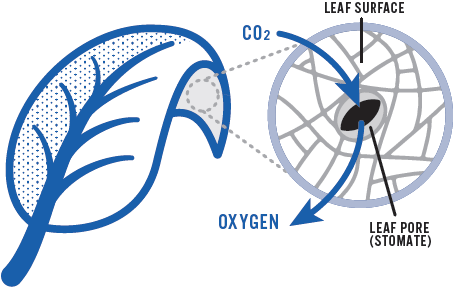
It is often said that "rainforests are the lungs of the planet". What does this metaphor actually mean, and is it true? Several other popular phrases are also used to describe the relationship between trees and the earth’s atmosphere. Are any of these phrases accurate? Why do trees and other green plants remove carbon dioxide from the air? What happens to all that carbon?
People often say that there is no gravity in space, but that clearly is not true. After all, the moon orbits the earth because of gravity, and the earth orbits the sun because of gravity. So why do astronauts in space experience weightlessness? Can you be weightless even if gravity is pulling on you? Is it true that Newton and Einstein had completely different explanations for gravity?
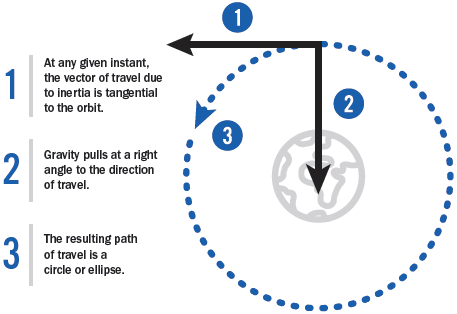
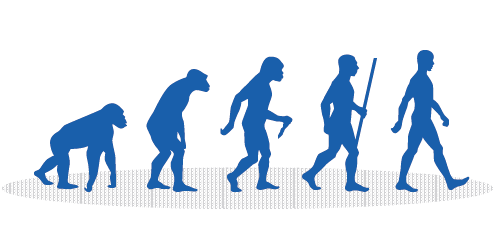
What does the phrase "survival of the fittest" actually mean? In particular, what does the term "fit" mean? Why is genetic variation within a species essential to evolution? What role does environment play in evolution? Is it possible to predict the future evolution of a species? Are humans really descended from monkeys? Why is the phrase "the ascent of man" (and the stereotypical illustration) so misleading?
For thousands of years we have said that there are five human senses. This habit is so universal that we refer to any additional sense, whether real or imagined, as a "sixth sense". But science tells us that humans have several senses that don't fit very well into the traditional 5-sense model. For example, your inner ear contains organs for two distinct senses: hearing and balance. If you were to objectively count the senses, how many would there be?
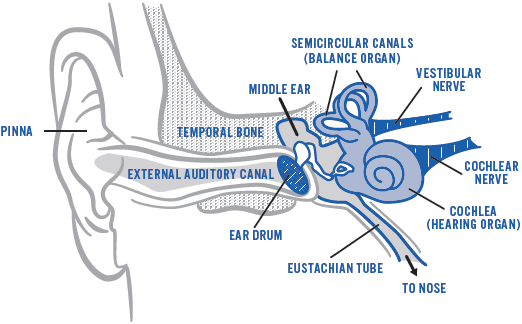
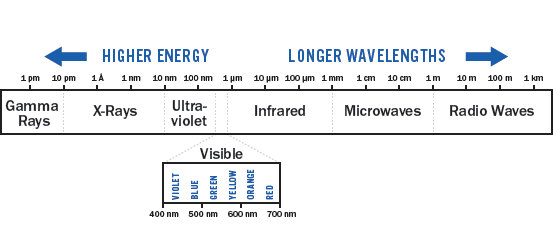
What does the word "radiation" actually mean? How many different kinds of radiation are there? Which forms of radiation are dangerous, and which are not? Which forms are the most harmful? Is it true that light is a form of radiation? What are the various categories of invisible light? What is the difference between electromagnetic radiation and particle radiation?
We are constantly bombarded with ads for killing germs on our hands, on countertops, in toilet bowls, and countless other places. We are warned to prepare food properly to kill the germs. When we get sick, we want to kill germs inside our bodies. But what are these germs that we want to kill? What distinguishes a "germ" from other microorganisms? Can our efforts to kill germs backfire on us?
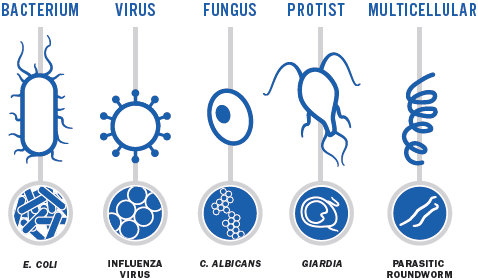
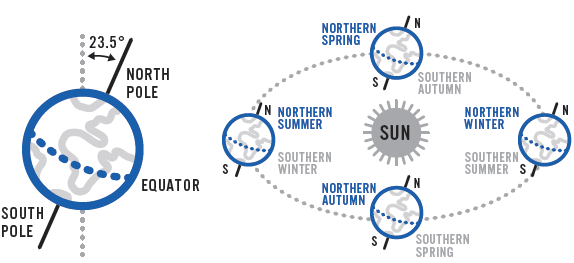
Modern technology relies on the idea that a day is exactly 24 hours, down to the millisecond. However, one spin of the earth on its axis is several minutes less than 24 hours. The time between true noon one day (when the sun reaches its highest point in the sky) and true noon the next day is not exactly 24 hours either. So why do we say that a day is exactly 24 hours, and what are the consequences of the mismatch?
It is often said that DNA is "the blueprint of life". But is this an accurate analogy? If not, then would it be better to compare DNA to a computer program? Or to a cookbook full of recipes? How does DNA actually work? If DNA merely codes for proteins, then what controls the development of a human body? What controls the myriad biochemical processes that constantly operate within every cell of our bodies?
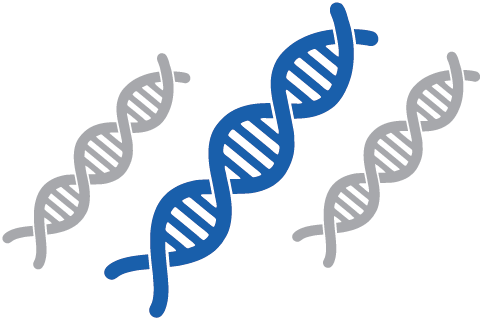
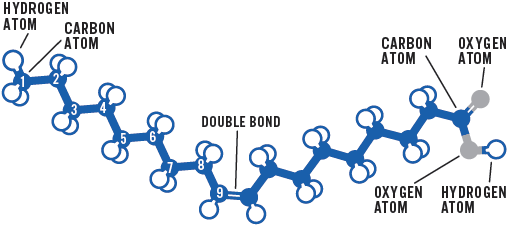
The words "superfood" and "toxin" seem to be everywhere on the internet and in mass media. Countless self-appointed experts will gladly tell you what superfoods you should eat to become super-healthy, along with the best way to "cleanse the toxins from your system". Most of this is nonsense, but is there a bit of science lurking behind these wild claims? What do the words "superfood" and "toxin" really mean?
We all use the word "energy", which suggests that we all have a partial idea of what the word means. However, we use the word in an amazing range of contexts — appliances, fuels, our bodies, weather systems, and so on. So how do we actually define the word "energy"? What phenomena are considered by scientists to be forms of energy, and what are not? Is this distinction arbitrary, or is it derived from a common factor shared by all types of energy?
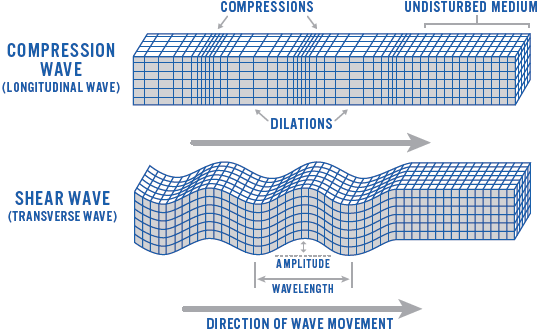
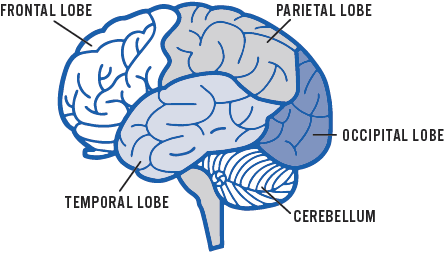
Several decades ago, the concept that people are either "left-brained" or "right-brained" was popularized by the media. Some people still use this terminology to divide humans into two broad categories. But is there any truth to this concept? How does the left side of the brain differ from the right side? What are the various parts of the brain, and what roles do these parts play? How does information get from one part of the brain to another part? What exactly are neurons and how do they work?
The term "global warming" has gotten highly politicized, even though science clearly shows that average temperatures are rising and that climates worldwide are changing. Is human activity really the cause of these changes? How fast are these changes occurring? How does the increase in atmospheric carbon dioxide trap heat? What other greenhouse gases are there? What is likely to happen if these gases continue to build up?
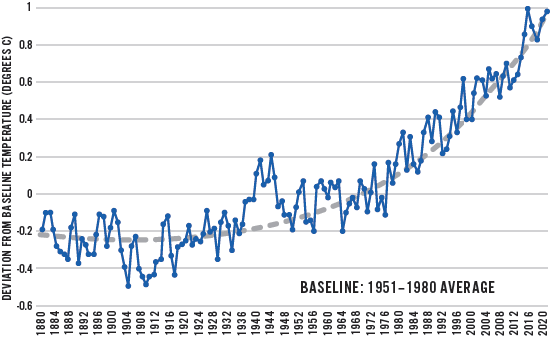
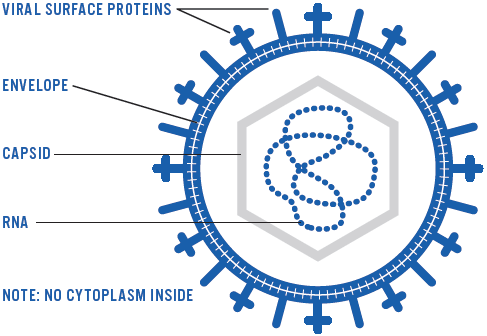
The disease we call Covid-19 did not even exist until the end of 2019, and yet it has already killed millions of people around the world. Why do some diseases become pandemics, while other do not? What is the best way to control an epidemic? What have been the worst epidemics throughout history? Which diseases have been the biggest killers in recent years? Can we take steps to reduce the threat of future epidemics?
You can order the book online from any of the following booksellers:
Or visit your favorite local bookstore and ask for it there!